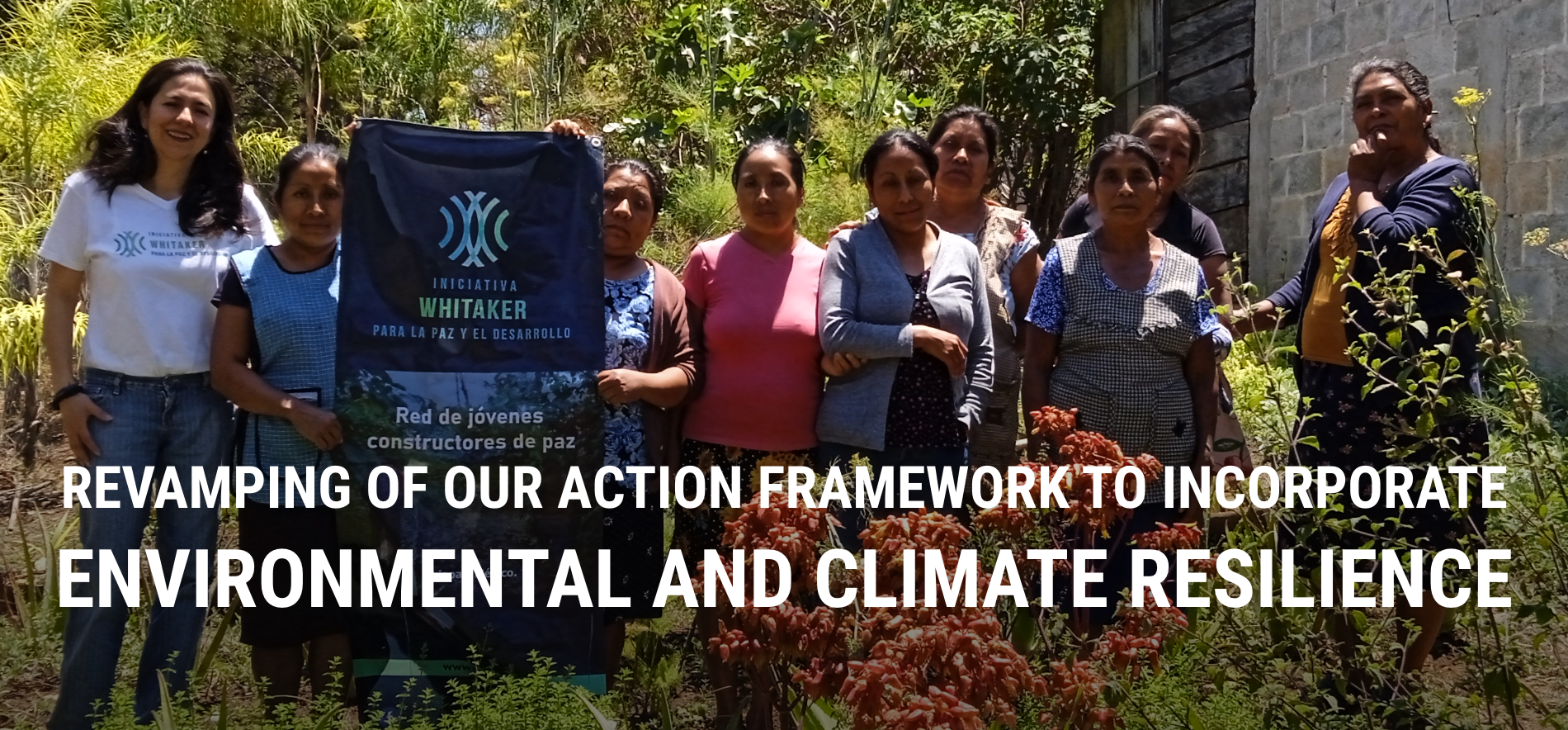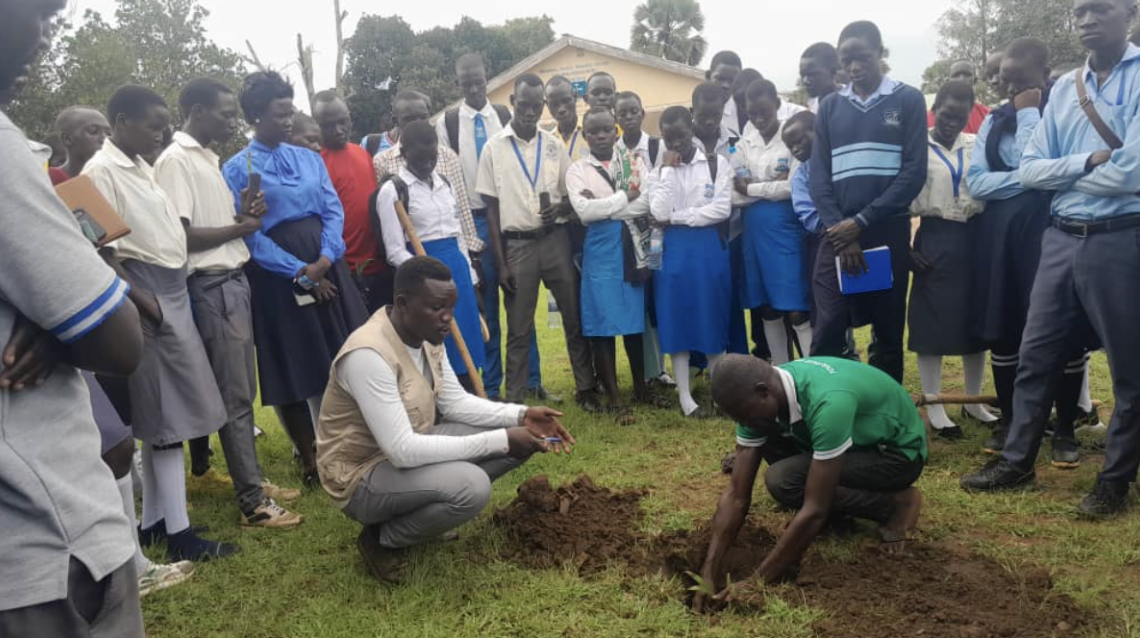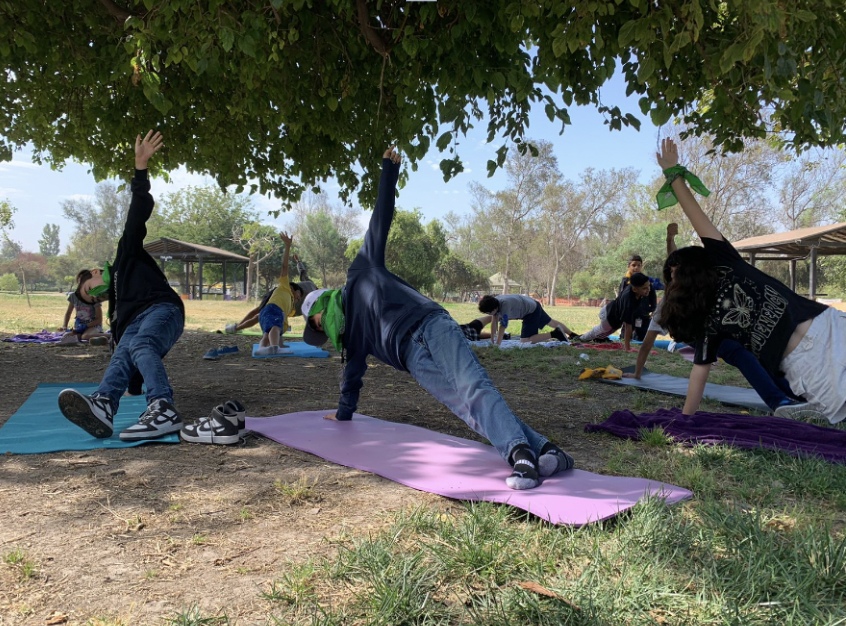A blog post on Earth Day 2024

April 22, 2024 – In today’s interconnected world, environmental risks, particularly climate change, have become pervasive, impacting every facet of life. This calls for collective awareness and action at all levels – from individuals to communities and organizations.
In a time when it becomes increasingly evident that the devastating effects of climate change threaten peace, we are keen to share a significant development of WPDI’s strategy, namely the revamping of our action framework to incorporate climate and environmental concerns into our programs. This change stems from our experience in remote, marginalized areas where we’ve observed conflicts often linked to climate change and environmental degradation. This is particularly evident in South Sudan and Uganda, where altered climate patterns have impacted crop yields and heightened land disputes.

Against such a background, it’s neither sustainable nor smart to address these issues sequentially. Climate and environmental challenges increase community fragility and reduce resilience, directly impacting our mandate as an organization committed to peacebuilding, livelihoods, health & wellbeing, and sports.
We’ve recognized that ecological degradation and peace are interconnected: the former threatens peace and security, while a community’s inability to maintain peace hampers its capacity to tackle climate and environmental challenges.

This underscores the need for programs integrating climate concerns into peacebuilding and economic development. By expanding our scope, we anticipate that empowered women and youth with relevant skills can effectively address their communities’ fragility and resilience issues. They can design and implement projects that make a difference, including raising awareness about the need for everyone to commit to positive change.
In response, we plan youth-led Community Dialogues focused on climate-related education and action, including water conservation, waste management, and tree-planting initiatives. Empowered youth can also promote climate education in schools, leading to greener schools and impacting the entire community.
This is in line with our theory of change, which suggests that providing key beneficiaries in conflict- and fragility-affected areas with climate-related education and skills in peacebuilding, entrepreneurship, and other vocational areas can enhance community resilience. We’ve started designing such integrated programs, notably in two of our programs in Uganda’s Adjumani Refugee Settlements, where we’re collaborating with UN Women to train individuals in climate-responsive business practices, particularly in agriculture.

Alongside this strategic transformation, we’ve initiated an internal shift by adopting a climate and environment policy. Our goal is to reduce our footprint and adopt more sustainable practices, contributing to a global struggle that concerns everyone on this planet.
By adopting environmentally responsible practices, we are enhancing our commitment to developing sustainable social infrastructure and sustainable development in underprivileged communities in the countries where we operate.
Alongside our new programs on environmental and climate resilience, WPDI has developed an internal policy, which will help us to make a positive impact on the environment while advancing our mission for peace and prosperity.
As we recognize the intersectionality of these issues, let us remember that only by ensuring environmental justice for all can we truly protect our planet and secure a brighter future for generations to come.